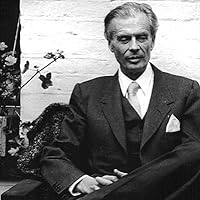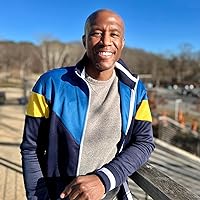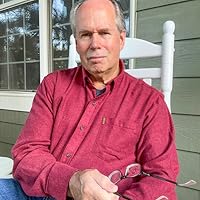Self Concept Quotes
Quotes tagged as "self-concept"
Showing 1-30 of 64

“To shift your life in a desired direction, you must powerfully shift your subconscious.”
― Moving Through Parallel Worlds To Achieve Your Dreams
― Moving Through Parallel Worlds To Achieve Your Dreams

“What others think of us would be of little moment did it not, when known, so deeply tinge what we think of ourselves.”
―
―

“If most of us remain ignorant of ourselves, it is because self-knowledge is painful and we prefer the pleasures of illusion.”
― The Perennial Philosophy
― The Perennial Philosophy
“John Hodgson can describe Richard Dawkins's atheism as vacuous only because 'atheist' is a term which non-believers use purely as a polemical convenience when we have to define concisely what we don't believe [...]. No atheist is principally that. What we'd want to call ourselves is humanist or materialist, or biologist or linguist, or for that matter socialist, because one or more of these, or something else again, is what we do and think and are. We have 'purely and simply finished with God', to adapt a phrase of Engels's.”
―
―

“Psychologist Carl Rogers used the word ‘congruence’ when describing this relationship between the idealized self and the real self. Congruence is when the two selves fit harmoniously, when a person’s idealized self is congruent with their actual behavior. However, the idealized self is an often unreachable version of ourselves that we and society create while the real self is the messy, imperfect inner truth. We want to be the idealized version because we believe that society will then regard us positively, so we struggle to maintain a version that does not really fit.”
― The Descent of Man
― The Descent of Man

“I would say that just as easy as a person puts on a raincoat and opens their umbrella before stepping out on a rainy day, you too must put on a new concept of yourself and never take it off, nor pull the umbrella of your imagination down until you see the sun shining on the new situation that you have imagined. You must never be convinced that you are being drenched in your old reality, regardless of how much others are absorbed in it. What is true for them is not true for you, because they are not living in your world. They are not living in your raincoat nor are they living beneath the umbrella of consciousness that you have raised. They may be completely soaked in their world while you remain poised and untouched by unfavorable conditions in your own.”
― Guru In The Glass: A Mysterious Encounter While Dying To Live The Unlived Life
― Guru In The Glass: A Mysterious Encounter While Dying To Live The Unlived Life
“To get back to the person I am, I had to reject so much of who I was told that I was.”
― Notes From Your Therapist
― Notes From Your Therapist
“Our evolving self-concept guides our daily actions, organizes our information processing, and fosters a stout mental predisposition that assists our ego maintain a fibrous self-image. Self-concept is not restricted to a bare assessment of what role we presently fulfill in society. Our self-image is an endogenous alloy that includes an agglomeration of past selves and possible future selves. Future selves or ‘possible selves’ represent a person’s ideas of what they might become, what they aspire to become, and what they are afraid of becoming.”
― Dead Toad Scrolls
― Dead Toad Scrolls
“Our emotional valence – positive or negative experiences – affects not only how we narrate childhood events, but also which memories we retain. The interplay between a person encountering environment experiences meshed with self-editing of various aspects of their complex memory system results in a person becoming more than a collection of memories: a person creates their personalized version of a self. A person integrates many experiences into creating their being. Personal encounters with other people as well as moments of personal solitude contemplating ideas and personal existence congeal to form the depiction of a self.”
― Dead Toad Scrolls
― Dead Toad Scrolls
“We don't always get to decide what others see when they sum us up or reduce us to a caricature of the rich and various selves we think we have fashioned.”
― The Tyranny of Virtue: Identity, the Academy, and the Hunt for Political Heresies
― The Tyranny of Virtue: Identity, the Academy, and the Hunt for Political Heresies

“If you wish to disassemble everything that you ‘are’ in order to reassemble yourself into something that you are ‘not,’ all that you will have left will be a pile of pieces that will be neither.”
―
―

“We must remember...
... race is a construct...
... class is a construct...
... gender is a construct.
Beneath it all we are quivering flesh.
Glistening in the sun.
Goose-pimpled in the moon.”
― The Roles We Play
... race is a construct...
... class is a construct...
... gender is a construct.
Beneath it all we are quivering flesh.
Glistening in the sun.
Goose-pimpled in the moon.”
― The Roles We Play
“Selfhood allows a person to hold a sense of a personal narrative comprising of a sequential autobiography of his or her life experiences. Selfhood embraces a social identity, a moral identity, emotional identity, behavioral identity, and an ethical identity. Selfhood comprises other feelings related to self-esteem. Selfhood entails numerous personal assessments and its spackled span includes evaluation of a person’s abilities in relation to other people. Selfhood includes comparing and rating a person’s level of intelligence, personality quirks, and physical powers with respect to other people. It also encompasses a personal image of a person’s body type, and a lengthily list of other observable facts including assessing a person’s comparative physical, mental, and psychological strengths and deficits.”
― Dead Toad Scrolls
― Dead Toad Scrolls
“A strict self-image demonstrates a predisposition to maintain a rigid explanation and definition of a person. Our self-image becomes self-perpetuating because of the tendency of the mind to exhibit partiality regarding what we attend to and a preference in what we are prepared to accept as true about the world and ourselves.”
― Dead Toad Scrolls
― Dead Toad Scrolls
“The human mind demonstrates the ability to adapt to stress and stabilize our mental health. When our self-construal no longer supports our continual survival, we must purge ourselves of selective narrow-mindedness. We must eradicate operable mental prejudices in order to become more inclusive and mentally balanced. It is only through deliberate thought that we can radically eliminate ingrained predispositions and reconfigure who we think we are. A reconfigured self-construal is an act of mental health stabilization. By altering who we think we are, we can accept environmental conditions that previously proved too harsh for our self-identity concept to accept. In order to achieve mental and emotional equilibrium, the mutable human mind adjusts our sympathetic sense of self-identity.”
― Dead Toad Scrolls
― Dead Toad Scrolls
“Self-image is the product of our very own spin machine. Revolutions of long-term memories and the gyrations of short-term thoughts fabricate the epicycle of our present self-image. Once a synchronized self-image is developed, the human mind exhibits a tenacious tendency to maintain that centralized self-image through selective recall of prior events and by displaying a corresponding perception bias in interpreting present day experiences. In short, once we come to a firm belief of what we are, we exercise various mental and emotional prejudices to confirm and sustain our self-image.”
― Dead Toad Scrolls
― Dead Toad Scrolls
“A sense of identity slowly but surely evolves when we experiment in the hub of life by consciously and unconsciously responding to the never-ending changes in our external world and as we develop our physical, emotional, and rational being. Periods of solitude assist a person identify the stealthy traits that a person surreptitiously acquired. Reflecting upon our personal experiences helps us comprehend the patterns of our nature that emerged, signs reveling what principles we most profoundly believe and what ethical obligations we value. Articulating a personal code of conduct acquaints a person with the single core of unity that formed in his or her subterranean mind, the persona that took shape while we immersed ourselves in the dark stream of self-identification.”
― Dead Toad Scrolls
― Dead Toad Scrolls
“Analogous to an incomplete idea, my life is presently without final form, my final composition is still undergoing revision, redacting, and conscientious self-editing.”
― Dead Toad Scrolls
― Dead Toad Scrolls
“People will surely talk about you till the day you exit this earth and nothing can be done about it; let people talk, it is not about what they say concerning you, nor what they call you, it is about what you answer to.”
―
―
“It almost seems that occasionally giving up self-consciousness is necessary for building a strong self-concept.”
―
―
“Ones self concept determines how he or she seizes opportunities in life as they are presented to him or her.”
―
―
“Poor self concept limits ones ability to take tasks and seize opportunities that are within ones capacity and potential because of the embodied self limiting beliefs one carries.”
―
―

“It's about my own self-concept. Can I accept that I am worth looking for? Here lies the core of my spiritual struggle: the struggle against self-rejection, self-contempt, and self-loathing. It is a very fierce battle because the world and its demons conspire to make me think about myself as worthless, useless, and negligible. As long as I am kept “small,” I can easily be seduced to buy things, meet people, or go places that promise a radical change in self-concept even though they are totally incapable of bringing this about. But every time I allow myself to be thus manipulated or seduced, I will have still more reasons for putting myself down and seeing myself as the unwanted child.”
― The Return of the Prodigal Son: A Story of Homecoming
― The Return of the Prodigal Son: A Story of Homecoming
“The end result of therapy is now no longer seen as congruency with experience. It is not the increased awareness of, or openness to experience. It does not mean the enlargement of the self so as to include all of one’s experience. It is not amatter of basing your self-concept on experience. Nor is it a matter of owning that experience as yours. It does not even mean accepting that experience for what it is. Rather, the end result is that you become the experience that you are.”
― Basic Intent and Therapeutic Approach of Carl R. Rogers: A Study of His View of Man in Relation to His View of Therapy, Personality, and Interpersona
― Basic Intent and Therapeutic Approach of Carl R. Rogers: A Study of His View of Man in Relation to His View of Therapy, Personality, and Interpersona
“This movement involves, first of all, that you relinquish all control over your experience. The language used in describing this process is one of surrendering your self to the wisdom of the experiential organism, which, one learns, is often wiser than the conscious self. Thus it involves first of all a trust in your organism. Or to use some interpersonal terms to describe this intrapersonal event, it involves more than being non-directive, or even empathic toward your experience. Basically it means that you become experience-centered. The self, as the thinker about, or tinkerer with experience, must in effect die, or at least drastically diminish in importance for the growth forces of the experiential organism to bear their fruit.”
― Basic Intent and Therapeutic Approach of Carl R. Rogers: A Study of His View of Man in Relation to His View of Therapy, Personality, and Interpersona
― Basic Intent and Therapeutic Approach of Carl R. Rogers: A Study of His View of Man in Relation to His View of Therapy, Personality, and Interpersona

“I myself am made up of so many people.”
― Etty Hillesum: An Interrupted Life and Letters from Westerbork
― Etty Hillesum: An Interrupted Life and Letters from Westerbork

“Don’t miss the fact that you are not defined by your own definition, for to do so is to suffocate in the confines of small spaces.”
―
―
All Quotes
|
My Quotes
|
Add A Quote
Browse By Tag
- Love Quotes 97k
- Life Quotes 75.5k
- Inspirational Quotes 72.5k
- Humor Quotes 43.5k
- Philosophy Quotes 29.5k
- Inspirational Quotes Quotes 27k
- God Quotes 26k
- Truth Quotes 23.5k
- Wisdom Quotes 23.5k
- Romance Quotes 23k
- Poetry Quotes 22k
- Death Quotes 20k
- Happiness Quotes 18.5k
- Life Lessons Quotes 18.5k
- Hope Quotes 18k
- Faith Quotes 18k
- Quotes Quotes 16.5k
- Inspiration Quotes 16.5k
- Spirituality Quotes 15k
- Religion Quotes 15k
- Motivational Quotes 15k
- Writing Quotes 14.5k
- Relationships Quotes 14.5k
- Life Quotes Quotes 14k
- Love Quotes Quotes 13.5k
- Success Quotes 13.5k
- Time Quotes 12.5k
- Motivation Quotes 12k
- Science Quotes 11.5k
- Knowledge Quotes 11k


